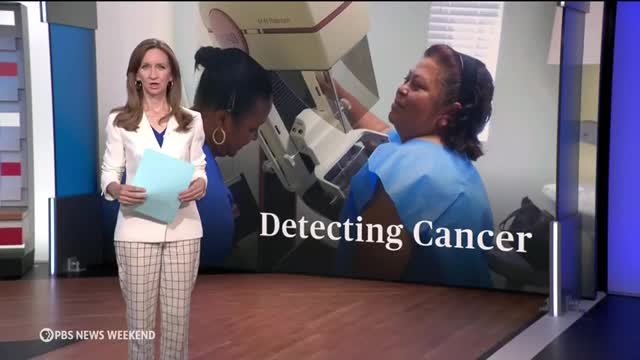FDA mandates breast density disclosure to save lives
This article was created by AI summarizing key points discussed. AI makes mistakes, so for full details and context, please refer to the video of the full meeting. Please report any errors so we can fix them. Report an error »

In a significant move to enhance breast cancer detection, the FDA has mandated that all mammogram reports now include information regarding a patient's breast density. This requirement, which aims to improve awareness among women, comes in light of the sobering statistic that approximately 1 in 8 women will be diagnosed with breast cancer in their lifetime.
Breast density is a crucial factor in cancer detection; higher density can obscure tumors on mammograms, making it more challenging to identify potential cancers. Joanne Pushkin, executive director of densebreastinfo.org and a breast cancer survivor, emphasized the importance of this new regulation. She noted that many women are unaware of their breast density and its implications, which can lead to missed diagnoses.
The updated reports will provide clear information on four key points: whether a woman has dense breasts, the associated risks of cancer being hidden, the potential need for additional screening tests, and the importance of discussing these findings with healthcare providers. Pushkin highlighted that women should carefully read the new section of their mammogram results, as it contains vital information that could influence their health decisions.
For women identified with dense breasts, there is no one-size-fits-all approach to screening. Pushkin advises that they should consult with their healthcare providers to determine the most appropriate screening strategy, which may include additional imaging techniques such as ultrasound or MRI.
Despite these advancements, challenges remain regarding insurance coverage for additional screenings. While many insurance plans will cover further imaging if deemed medically necessary, the specifics can vary widely by state. Pushkin advocates for standardized insurance coverage to ensure all women have access to necessary screenings without financial barriers.
The FDA's new requirements represent a critical step forward in breast cancer awareness and detection, potentially saving lives by ensuring women are better informed about their breast health.
Breast density is a crucial factor in cancer detection; higher density can obscure tumors on mammograms, making it more challenging to identify potential cancers. Joanne Pushkin, executive director of densebreastinfo.org and a breast cancer survivor, emphasized the importance of this new regulation. She noted that many women are unaware of their breast density and its implications, which can lead to missed diagnoses.
The updated reports will provide clear information on four key points: whether a woman has dense breasts, the associated risks of cancer being hidden, the potential need for additional screening tests, and the importance of discussing these findings with healthcare providers. Pushkin highlighted that women should carefully read the new section of their mammogram results, as it contains vital information that could influence their health decisions.
For women identified with dense breasts, there is no one-size-fits-all approach to screening. Pushkin advises that they should consult with their healthcare providers to determine the most appropriate screening strategy, which may include additional imaging techniques such as ultrasound or MRI.
Despite these advancements, challenges remain regarding insurance coverage for additional screenings. While many insurance plans will cover further imaging if deemed medically necessary, the specifics can vary widely by state. Pushkin advocates for standardized insurance coverage to ensure all women have access to necessary screenings without financial barriers.
The FDA's new requirements represent a critical step forward in breast cancer awareness and detection, potentially saving lives by ensuring women are better informed about their breast health.
View full meeting
This article is based on a recent meeting—watch the full video and explore the complete transcript for deeper insights into the discussion.
View full meeting